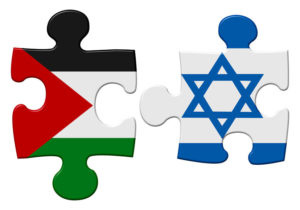Israel-Palestine
“To reconcile conflicting parties, we must have the ability to understand the suffering of both sides. If we take sides, it is impossible to do the work of reconciliation. And humans want to take sides. That is why the situation gets worse and worse.
Are there people who are still available to both sides? They need not do much. They need do only one thing: go to one side and tell all about the suffering endured by the other side, and go to the other side and tell all about the suffering endured by this side. That is our chance of peace. That can change the situation.
But how many of us are able to do that?” – Thich Nhat Hanh
The My Brother from Another Mother blog started as a way to highlight the commonalities between Islam and Judaism. It sprang from founder Joyce Schriebman’s research on the two faiths’ philanthropic practices and the intention that we should look first at our commonalities before we address our differences. The blog had a policy to not talk about politics or the Middle East because we wanted to be a positive force in the world, concentrating on the many things the two religions have in common rather than bring up potentially contentious topics that would highlight differences.
In hindsight, that position was problematic on several counts. The initial policy was based on an underlying assumption that Jews and Muslims would have differences of opinion on Israel-Palestine that would divide along religious lines. Also we assumed that the conversation would somehow undermine the personal relationships we were developing and that it would be possible and preferable to avoid the Israel-Palestine conversation
We were wrong.
While there is ample evidence to support the practice of building relationships through commonality before delving into challenging areas, there is no reason to fear tough conversations if all parties are willing to devote time and energy to prepare for the discussion.
Where do we start?
Start with the guide: How to talk to just about anyone about Israel-Palestine: First steps toward meaningful dialogue. [link to book landing page] This 20-page pamphlet will help you
- Understand the purpose of conversation.
- See why getting to The Truth is a dead-end.
- Recognize the difference between an opinion and a fact.
- Shift from “We’re talking in circles!” to “I get where you’re coming from.”
- Identify NGO’s and others doing effective peacebuilding work.
Download your copy of How to talk to just about anyone about Israel-Palestine.




